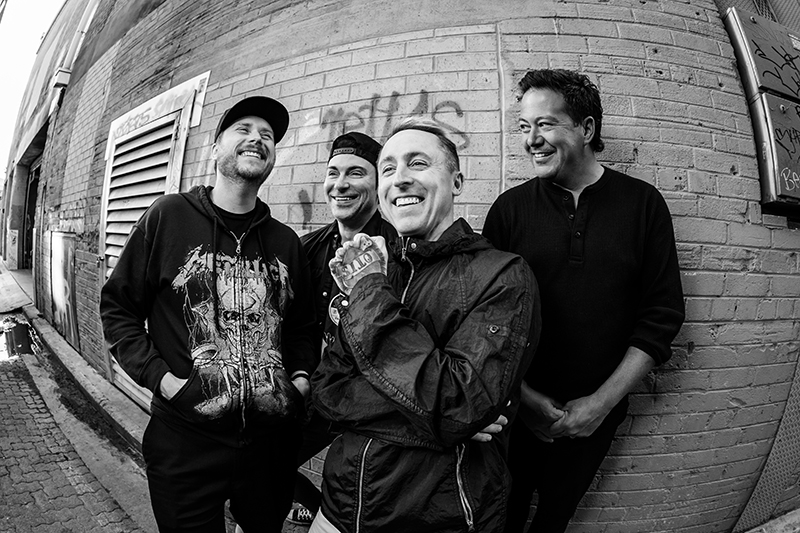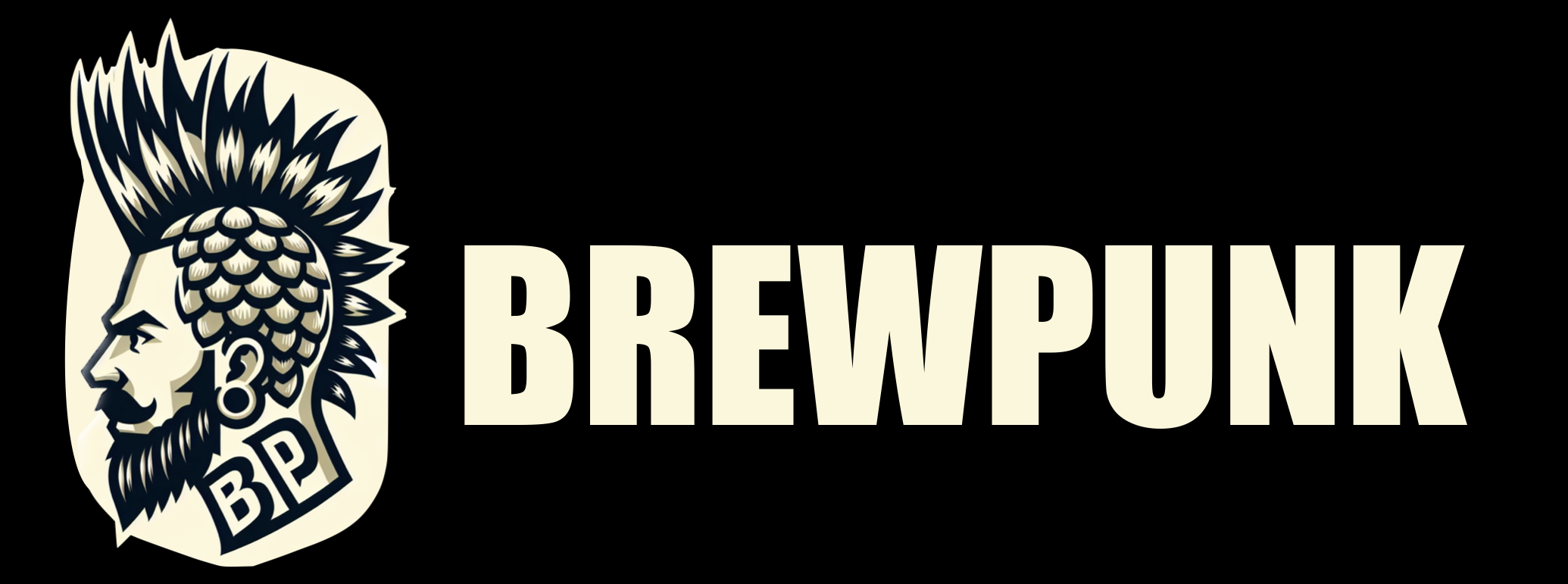Yellowcard has released their new album “Better Days”

Punk veterans Yellowcard has returned with their new album “Better Days”.
Yellowcard meant it when they said goodbye. The lights dimmed on one of the most beloved pop-punk and alt-rock bands of the 2000s with intention and authenticity. Wrapping things up with a farewell tour, Yellowcard exited the “right” way, with grace, appreciation, and finality. But the story wasn’t complete. Legacy cracked the door. Healing blew it wide open. Riding a resurgence that saw the global Ocean Avenue 20th anniversary tour featured in Forbes and a reconciliation that put all four members at peace with their legacy and each other, Yellowcard just made the most ambitious and emotionally resonant record of their career. Better Days, the band’s first album in nearly a decade, was produced by blink-182’s Travis Barker, who also played drums on every track.
“Better Days” is an unflinching reflection on gratitude, forgiveness, perspective, and purpose. Once ubiquitous on MTV and the Billboard Hot 100, the Vans Warped Tour veterans, whose first two albums produced double-platinum and gold title tracks, sound fully recharged and revitalized in 2025.
Violinist Sean Mackin says Better Days is “fresh, energized, and still sounds like Yellowcard”. Songs like “Take What You Want”, “honestly i” and “Better Days” are deeply felt emotional anthems.
“I started the record as one version of myself and came out the other side changed” says frontman William Ryan Key, who credits Barker with a significant impact on his personal and creative studio breakthroughs. “I went in knowing I needed help. I came out of it writing songs like I was 19 again”.
The band Rolling Stone dubbed “pop-punk-plus-violin” traces its origins to Florida. Yellowcard was really off and running when Key and Mackin signed on full-time and moved the operation West, where they signed with Capitol Records, beginning a long partnership with producer Neal Avron (Linkin Park, Twenty One Pilots, Fall Out Boy), and crafting 2003’s platinum Ocean Avenue.
That landmark album is regarded as a genre classic. In recent years, Kerrang! placed it on its list of the 21 Greatest Rock and Metal Albums for Summertime, alongside milestone records from Guns N’ Roses, Van Halen, and Beastie Boys. The title track appeared on the same magazine’s The Story of Pop-Punk in 16 Songs, a list stretching from Green Day and blink-182 to Machine Gun Kelly.
Yellowcard appeared on the blockbuster soundtrack to Spider-Man 2 in 2004 and performed at the MTV Movie Awards the following year. 2006’s Lights and Sounds gave the band its highest-charting single. Despite being a bit of a stylistic left turn, the album sits in the band’s catalog like Weezer’s Pinkerton or Beastie Boys’ Paul’s Boutique – a sophomore “slump” later regarded as a creative gem.
“I was extremely overwhelmed by stress, anxiety, and pressure from Ocean Avenue, but I didn’t have the emotional intelligence to understand any of it” Key explains “I just internalized it all. I shut down. I feel like I was in a basement in the East Village partying for a whole year. That was how I dealt with it at the time and, in turn, made a record about it. It was a dark, cloudy, stormy record compared to Ocean Avenue”.
The album’s momentum stalled when Key’s voice gave out, requiring vocal cord surgery, and the label stopped all promotion efforts. After the singer’s recovery, the band was rushed back into the studio. 2007’s Paper Walls was Yellowcard’s first with guitarist Ryan Mendez and their last for Capitol.
“There was a lot of rejuvenation and hope” Key recalls “We made this great record that people were so excited about. But then the label fell apart. A new president and head of A&R came in, and we didn’t know any of these people. After that, we felt beaten down, from the mountaintop we had reached with Ocean Avenue to where we landed in 2007”.
The band severed ties with the label and quietly stepped away from touring. “Everybody had to venture into their own world and figure out who they were. It was a challenging, strange time”.
Eventually, Yellowcard reconvened. Hopeless Records released 2011’s When You’re Through Thinking, Say Yes, 2012’s Southern Air (the band’s first with bassist Josh Portman), and the tenth anniversary emotional reimagining of Ocean Avenue, 2013’s Ocean Avenue Acoustic.
“We returned to a lot of excitement, and the first few years went well” Key says “Hopeless was a fantastic partner. But the industry kept evolving, as it always does. Many bands in our genre began to see a decline in ticket sales and interest in new music. On top of that, we each went through significant personal tragedies, whether it was illness, injury, or loss of a family member, around Southern Air”.
Lift a Sail, their only album with the now-defunct Razor & Tie, is Key’s personal favorite. He used the writing and recording of it as therapy to work through what was happening in his life. However, “We went out to tour that record, and it just didn’t feel good” he says “It got to the point where it seemed as if we were chasing our tails, and being away from our families for 9 months a year just didn’t seem worth it anymore”.
Exhausted by personal hardships and tragedies and feeling like the band’s diminishing returns couldn’t support their families, they elected to walk away from Yellowcard, on their terms, in 2017.
“We wanted to make sure that the final moment we had with everyone who had allowed us to play music for 16 years was special” Key says “We did this tour, and it was amazing. We played in Europe, Australia, Japan, and the United States. We ended it out in Anaheim, California, with what we thought would be our final performance as a band. What a moment in time that was. This was definitive – the last night, the last show – and amazing. It was an incredible night I’ll never forget, as if it were the last show. I still remember it that way”.
“After that, there wasn’t much communication” he says “It was just over”.
Riot Fest knocked on Yellowcard’s door with an amazing opportunity in 2022. Some of the band’s members hadn’t spoken to each other in six years. Conversations were had. Wounds were healed.
“There was tension, personality conflict, and years of passive aggression” Key concedes “I can only accept responsibility for my role. I’m so susceptible to intense levels of stress, and when I was young, that would cause me just to shut down, overreact. I made a lot of mistakes and hurt a lot of people. Changing these traits is something I worked very hard on in my time away from the band”.
The Riot Fest show was cathartic for all of them. “Getting on that stage again, seeing how much the songs still meant to everyone, it turned into something else entirely” Mackin says “It felt like a gift”.
What began as a one-off reunion became a full-blown Ocean Avenue 20th anniversary tour, appearances at other major fests like When We Were Young, and a trek with Third Eye Blind. They contributed to Disney’s A Whole New Sound (featuring guest vocals from Chrissy Costanza) compilation and released the self-produced Childhood Eyes EP.
“We’ve been kind to each other since we returned. It’s that simple” Key says “It takes a while to figure out that all you need to do is be kind and listen to each other. Nothing happens now that isn’t discussed very calmly, so we can ensure that there’s never that kind of tension in the band again. You realize how fragile it is and that it’s worth fighting for. It’s worth sacrificing and not dying on a hill you know is wrong. A lot of the pride has been washed away and replaced with this gratefulness, shock, and awe at how big it is. I don’t know how to explain any contributing factor that made this possible. I don’t know how we went from ‘we can no longer carry on’ to amphitheaters and arenas”.
Mackin is similarly full of gratitude about Yellowcard’s second act. “This time we’re all rowing in the same direction. There’s unity and respect. We know how fragile it is, and we’re treating it with care”.
The band agreed that making a new album was pointless unless it was the best of their career. They refused to rush the process and, for the first time, gave themselves permission to ask for help. Mendez invited his longtime friend and former bandmate Nick Long (Linkin Park, blink-182, mgk) into the writing sessions. Long introduced Barker to the project, and soon after, he was on board to produce the whole record.
“Travis isn’t just the best drummer in the world. He’s an incredible producer – his instincts, his focus” Mackin says “We didn’t know if we still had it. But as soon as we started writing, it was like, ‘Where did this come from?’ There was joy in the room. Real joy. There’s a sense of wonder again”.
It’s an album born from humility, resilience, and raw honesty. Barker helped Key face some of the same insecurities and impostor syndrome that plagued him as far back as the Ocean Avenue era.
“In the end, I enjoyed making the album so much” he says “It reminded me of who I need to be for the other guys in the band, as a person, and who I need to be as a vocalist for the fans. I’m not afraid. I have the tools now, mental health-wise, to avoid some of the traps that take me to the darker sides of my personality. I’m never going to get away from that stuff permanently; it will always be there, but how you process it, internalize it, and externalize it, that’s what matters. This recording process gave me confidence and instilled hope and excitement”.
Better Days is Yellowcard’s reminder — to themselves and anyone listening — that healing is a process, growth is nonlinear, and sometimes the best chapter opens after the supposed ending.
“We’re more prepared to make the most of it and truly make it special for Yellowcard fans and ourselves more than ever before. There’s a clarity and unity that has never existed in over two decades of being a band” Key says “I can’t get my head around how incredible it is to be in Yellowcard right now”. The band’s first release with powerhouse label Better Noise Music, Better Days is Yellowcard’s testimony that healing is a process, growth is nonlinear, and sometimes the best chapter opens after the supposed ending. This isn’t just a return. It’s a reckoning. And this time, Yellowcard is ready.
